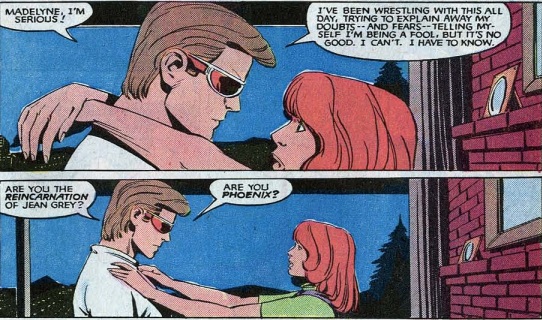1.
“Just how game-changing was that big revelation on ‘Game of Thrones’?”: Spencer Kornhaber, Christopher Orr and Amy Sullivan debate the
merits of the fifth episode in “Game of Thrones: Season 4.” Related: At The Daily
Beast, Andrew Romano argues “Why we should pretend the ‘Game of Thrones’ rape scene never happened.”
“The last 15 minutes or so of this episode packed more suspense than any
scene since Joffrey’s wedding-day torment of Tyrion has. But it was all
decidedly, almost parodically, television. By which I mean, ‘Game of Thrones’ is better than most
shows precisely because it doesn’t typically trump up drama by putting its
characters in situations as silly as the video-game boss duel between Jon and
Karl (with the mutineers outnumbered and outmatched, there’s no reason for Snow
to take this guy on alone). I’ll agree that we got a nice fist-pump moment when
a Craster wife intervened, but we’ve seen that kind of deus-ex-machina fight
resolution so many times elsewhere that the thrill feels a bit hollow. I’m
conflicted here—I do want the producers to enliven the dull parts of the books,
but am wary about any slippage away from the genre-busting realism that makes ‘Game of Thrones’ so distinctive.”
2.

“Will fear of cancellations become a thing of the past?” Todd VanDerWerff of The A.V.
Club argues that “network TV may no longer occupy the center of the broadcast
universe.”
“What’s
happening isn’t that networks have taken leave of their senses or have run out
of options and are just throwing stuff on the air they know will get a certain
number (though some degree of both may be true). What’s happening is that TV
shows increasingly are seen less as immediate performers and more as long-term assets.
The rise of Netflix, Hulu, and Amazon Prime in the world of TV has proven to be
comparable to the rise of DVD in the world of film. It’s pumping ridiculous
amounts of money, even for catalog items, into the fragile network economy.
Network TV may no longer occupy the center of the broadcast universe, but it
doesn’t need to. A good show, a show that people will want to binge-watch, can
pop up anywhere, and the potential upside for it, even if it tanks in its first
run, is enormous.”
3.

“Difficult X-Men: A Defense of Cyclops” by Alex Pappademas of
Grantland.com.
“Of course Wolverine is cooler than Cyclops. But
that’s because he’s a child’s idea of a tough-guy adult. Cyclops lives in a
screwed-up world largely of his own making, the way an actual adult does.
Wolverine’s the badass we want to be; Cyclops is closer to what we actually
are, and maybe he’s too close to be truly likable. Wolverine is a loner who’s
found the courage to care about a surrogate family, whereas Cyclops is never
quite at home. Scott has assumed a string of different roles—student,
husband, father, superhero, mutant civil-rights crusader, terrorist, guy fused
with Apocalypse inside the body of the Living Monolith—without ever actually
finding one that fits him. The only thing he’s ever been good at is leading the
X-Men, and if you really start breaking down his record, he actually hasn’t
been great at that, either. Whedon once nailed Scott’s struggle as a “struggle
against mediocrity,” which is just about the most human motivation I can
imagine for a superhero—or a human. I don’t know—maybe you’re the best there is
at what you do. But I relate to Cyclops because I live every day with the
knowledge that I’m not.”
4.

“Movies Without Cuts: A Scientist’s Experiments to Expand Cinema’s Language” Vadim
Rizov of Filmmaker Magazine reports on the curious work of neuroscientist Sergei Gepshtein.
“Beyond the practical, Gephstein wants to help
get shot composition down to more of a science. The ability to determine what
kind of visual information viewers perceive and/or tune out would help
seamlessly introduce elements within a shot without the need to cut, although
Gephstein’s not quite sure what this would look like. Still, he’s frustrated by
what he seems to perceive as the unthinking tyranny of editing. ‘The film
industry rests on a narrow selection of possibilities that got discovered early
on and then got canonized by the force of inertia and entrenched by film-making
technology and habit,’ he says.”
5.
“Being Black and Nerdy: How everything from desegregation to Super Mario RPG made me an advocate for putting your personal politics into video games”: ‘Sidney’ of
Medium.com pens a provocative piece on “gaming’s inseparability from whiteness.”
Related: Vox.com writer Alex Abad-Santos declares that “Marvel is realizing straight white guys aren’t the only ones who can save the world.”
“Maybe this is what I love so much about Anne Revere’s performance as Mrs. Brown: that sense she projects of having a rich but invisible inner life, a complicated past that mattered to her and shaped her before becoming a mother, and which she looks back on without regret or nostalgia.”
Image of the Day

The Fill the Well blog has uncovered a fascinating inside joke that pops
up in a number of animated features. What does it mean? See for yourself.
Video of the Day
Welles Woodstock Commercial 2014-2015 from Woodstock Celebrates on Vimeo.
The 80th anniversary of the Todd Theatre Festival, produced by Orson
Welles and Roger Hill in 1934, will be held Friday, May 16, and Saturday, May
17, in Woodstock, IL, with guest speakers including Jonathan Rosenbaum, Joseph McBride and Robert
K. Elder. Visit the official site for more info.













